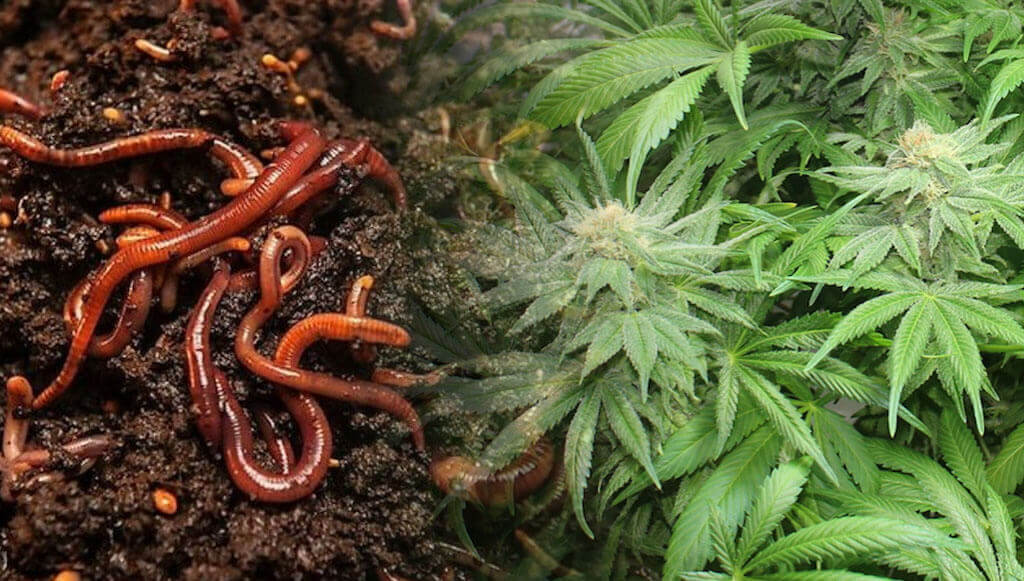Image via
Worms get the munchies after consuming cannabis, according to a bizarre study that was published in the Current Biology journal on 4/20.
This intriguing study aimed to discover if researchers could simulate the phenomenon of cannabis-induced munchies outside of the mammal kingdom. The researchers chose an animal that is almost as far from humans as they could get: C. elegans, a tiny nematode worm that is no bigger than a human eyelash. The study authors simulated the effects of cannabis intoxication by soaking their tiny subjects in anandamide, a naturally occurring endocannabinoid.
It’s impossible to say whether the worms got high or not, but they certainly did seem to get the munchies. After being soaked in the natural cannabinoid, the nematodes ate larger quantities of bacteria than they did before they were “stoned.” And when given a choice of different bacteria blends to eat, the worms actively sought out the highest-calorie bacteria – just like a human might choose to crack open another bag of chips after hitting the bong.
“The very fact of hedonic feeding in nematodes was surprising,” said Shawn Lockery, professor at the Institute of Neuroscience at the University of Oregon and co-author of the study, to CNN. “The munchies in a worm. Really?”
To further explore the phenomenon, researchers used nematodes that were genetically modified so that their cannabinoid receptors would glow green when activated by the anandamide. According to Lockery, this experiment suggests that the cannabinoid made the worms’ “olfactory neurons… more sensitive to preferred food and less sensitive to less preferred food,” but the exact biological mechanism behind this phenomenon remains “quite a mystery.”
“We suggest that this increase in existing preference is analogous to eating more of the foods you would crave anyway,” said Lockery to The Guardian. “It’s like choosing pizza versus oatmeal.”
The research helps shed some light on the endocannabinoid system, a network of receptors that helps regulate eating, anxiety, mood, memory, and many other critical functions. Previous research has discovered that cannabinoids can trigger specific hunger hormones in humans and other mammals, but the present study is the first of its kind to discover that the munchies can occur in other kinds of animals.
“The fact that the human cannabinoid receptor gene is functional in C. elegans food-choice experiments sets the stage for rapid and inexpensive screening for drugs that target a wide variety of proteins involved in cannabinoid signaling and metabolism, with profound implications for human health,” Lockery told The Guardian.
The study authors suggest that their research can help other researchers better understand how the endocannabinoid system can influence “the pharmacological management of health, including eating disorders and substance abuse.” This could in turn help scientists develop new medications that could treat obesity and other metabolic disorders.
“Our findings help us to understand more fully our place in the animal universe,” Lockery said to CNN. “It shows that in at least one respect, the decisions we make are influenced by factors that even a worm can understand.”











